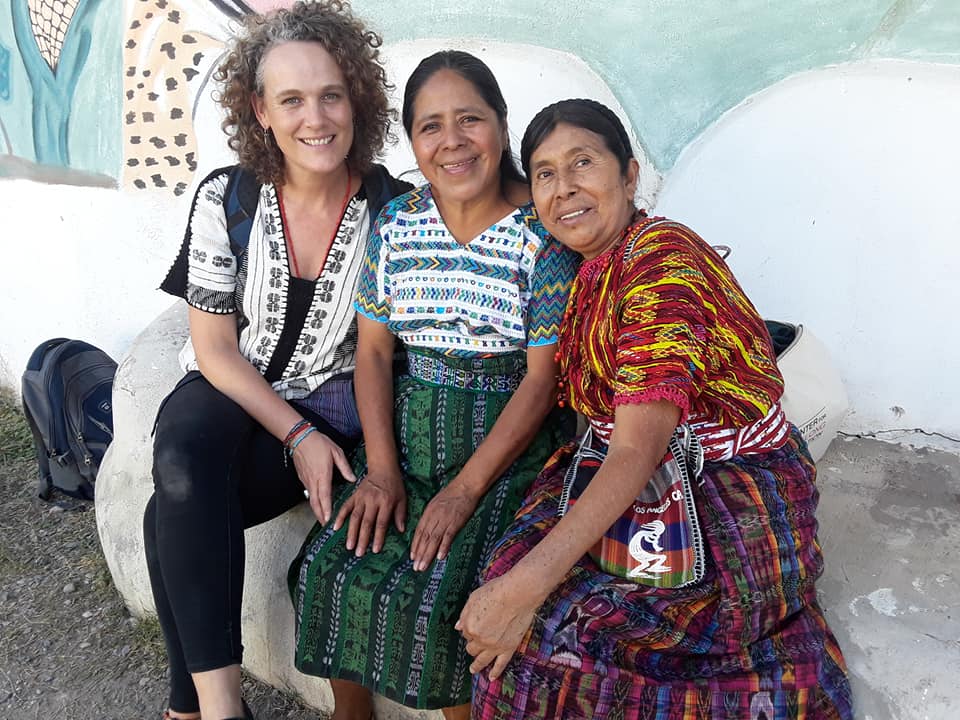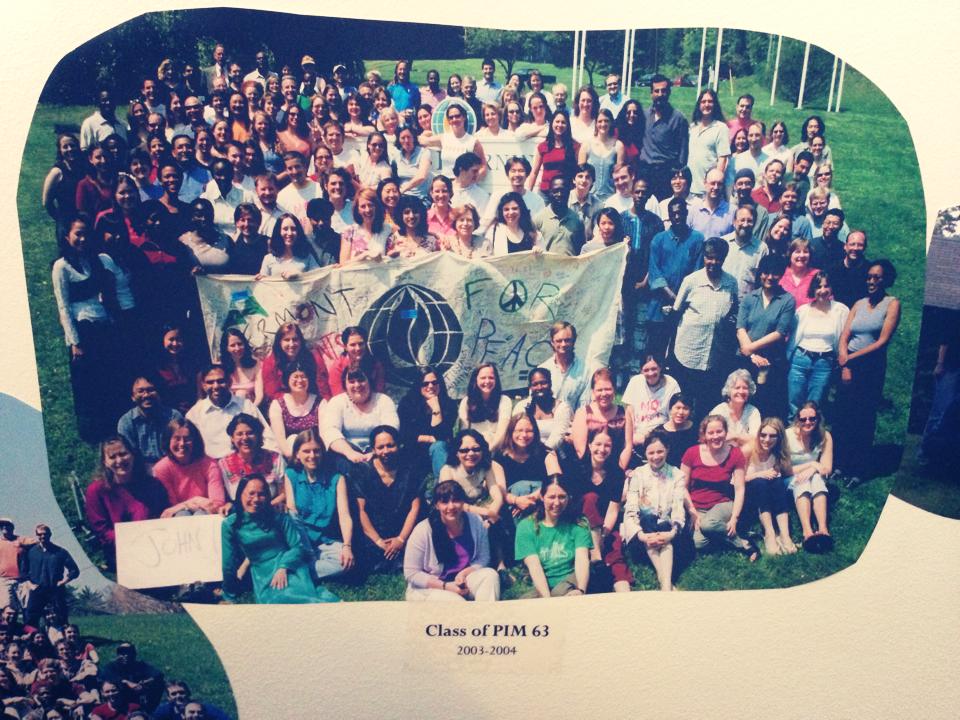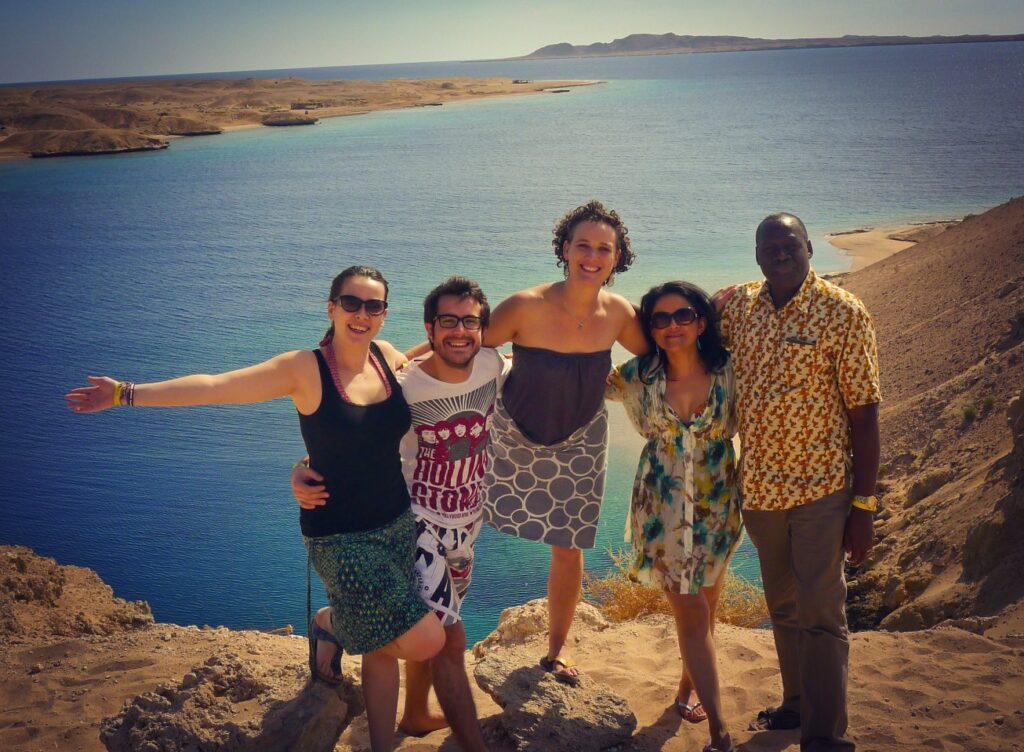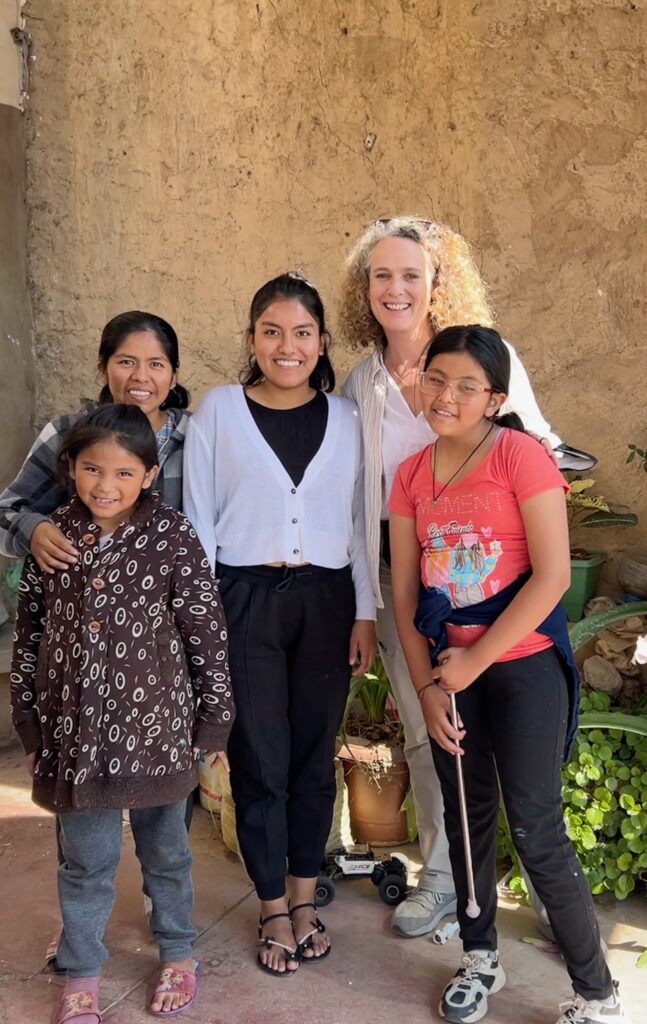Graduate alumna Rebecca Cutter says SIT made her a more thoughtful sustainable development practitioner
October 28th, 2024 | Alumni, Careers, SIT Graduate Institute
By Eric House

Rebecca Cutter is a graduate of SIT’s MA in sustainable development practice. Before joining SIT, Rebecca worked in Guatemala as a founder of the Mesoamerican Permaculture Institute, a women-led nonprofit focused on food sovereignty.
Since graduating in 2005, she has continued her work with Indigenous communities in Guatemala. She currently works as an independent contractor at Garden’s Edge, which supports food sovereignty and the preservation of traditional cultural ways of the Maya Achi of Guatemala, and for the Bolivian Quaker Education Fund, which strengthens connections between Quakers in the Andes and those in North America and Europe.
We recently spoke with Rebecca about her time with SIT, where she shared the importance of remaining critical in the sustainable development field, as well as the values of community and solidarity.
What made you want to pursue a graduate degree?
My undergraduate degree was in art and design education. I kind of went through the world seeing it as a designer would—of spaces, experiences, and situations. I also had a background in ecology, but that had more to do with my father, who was an ecologist. Then I traveled to Guatemala in 1996 when they signed the Peace Accords. I fell in love with the country and stayed for 15 years. After the first six years of living and working in Guatemala at the grassroots level, supporting some food sovereignty work, specifically on seed banks and the conservation of traditional agricultural practices, I decided to get a master's degree.
I realized that this work is about people. It's about the impact we have on people's lives, on our own lives, and the formation of who we are and how we think and behave in the world.
Why did you decide to get a master’s degree in sustainable development?
I chose sustainable development because I was deeply enmeshed in the permaculture movement at the time. Permaculture is a codified system of design principles that's applied mostly to agriculture but also to other systems, like how you run a school, how you design a house, or how you might organize a cooperative in a community. Its principles and ethics include the care of the earth and of people and the fair share or equitable distribution of excess resources.
In Guatemala, I worked with Indigenous people who had been trained in permaculture. My role as a foreigner in that permaculture movement was one of support and solidarity for grassroots initiatives in Guatemala around food sovereignty. I was part of a group of people who founded the Mesoamerican Permaculture Institute, and so I was interested in sustainability.
What about SIT’s global master’s in sustainable development practice stood out to you when looking for a master’s program?

SIT’s pedagogical approach to education, particularly with popular education, is what really intrigued me. Popular education is a tool for social change or for organizing and creating political and historical awareness. It brings groups of people together who are struggling through a common experience. As we look at a common experience, popular education asks, “How did that make us feel? Why is this happening to us, what does it mean, and where can we go from here?” It's very action-oriented, and what I learned in Latin America was only reinforced at SIT.
Aside from permaculture and popular education, what other passion areas were you able to pursue while in the program?
At that time, women's leadership in development was becoming a big thing, so that was a focus area for me while at SIT because there is a lot of patriarchy in Latin America. Even within the permaculture movement, there is a lot of patriarchy. I was drawn to work with women because I felt a certain connection to their struggle. To this day, my work supports the intersections of education, women's leadership, and food sovereignty.

In addition to coursework, you did a three-month internship, capstone, and capstone presentation. What were the highlights of those experiences for you?
One of my internships was with the Central American Solar Energy Project where I did a social impact study of their women's leadership, which became my capstone theme.
I traveled throughout Central America to all of the offices in Nicaragua, Costa Rica, Guatemala, and Honduras, spent about a week with each group, met with their staff. I had the opportunity to interview them and the people in the community to figure out what impact the work has had on people's lives and their communities.
During your time in the program, did you meet with organizations or professors who helped bring key theories and practices into focus for you?
All of SIT’s theory and history of sustainable development courses were eye-openers for me. What I learned at SIT is that sustainable development is fraught with macro development disasters and well-intentioned people doing more harm than good. I became much more critical of the field and even thought about leaving it. I started to see sustainable development as an industry and not just as this benevolent field that people work in because they care a lot.
SIT was really important to me. It's not just about what you learn when you're there, but it's also an experience that transforms you. And that doesn’t just stop after you graduate.
However, SIT helped me pair that critical lens with intercultural communication skills and the psychology of human behavior. Once I graduated, I was able to go back into the field and continue working, but with much more thoughtfulness about how I was showing up so that I didn’t contribute to further colonization.
Considering these themes, how did you and the communities that you were with help you to decide that the work was still worth pursuing?
Working as a consultant for seven years has allowed me to work with smaller organizations. This gives me a lot more flexibility, more learning opportunities, and the ability to be intentional about where and with whom I work.

Working in Guatemala for 20 years has been helpful too. Recently, I returned for a visit. As I was walking through a community, I kept running into women who would tell me stories about how they remembered doing participatory action research together. They would tell me that they went on to get their high school degree, to work for the municipality, own a business, start an organization, or inspire their daughters to go to school.
I realized that this work is about people. It's about the impact we have on people's lives, on our own lives, and the formation of who we are and how we think and behave in the world. And it's about solidarity because I cannot liberate other people from their oppression. It's about lifting and strengthening grassroots initiatives.
When you look back on your time with SIT and your experiences, what stands out to you?
SIT inspired in me the importance of remaining critical and analytical. What I also loved about SIT was all of the group work that we did. SIT attracts interesting people who've had such diverse experiences and come from different backgrounds. That is so valuable because in this field, when you work all by yourself, who is going to challenge you? Who is going to help you see something from a different viewpoint? Who is going to keep you accountable to your values? SIT was really important to me. It's not just about what you learn when you're there, but it's also an experience that transforms you. And that doesn’t just stop after you graduate.
